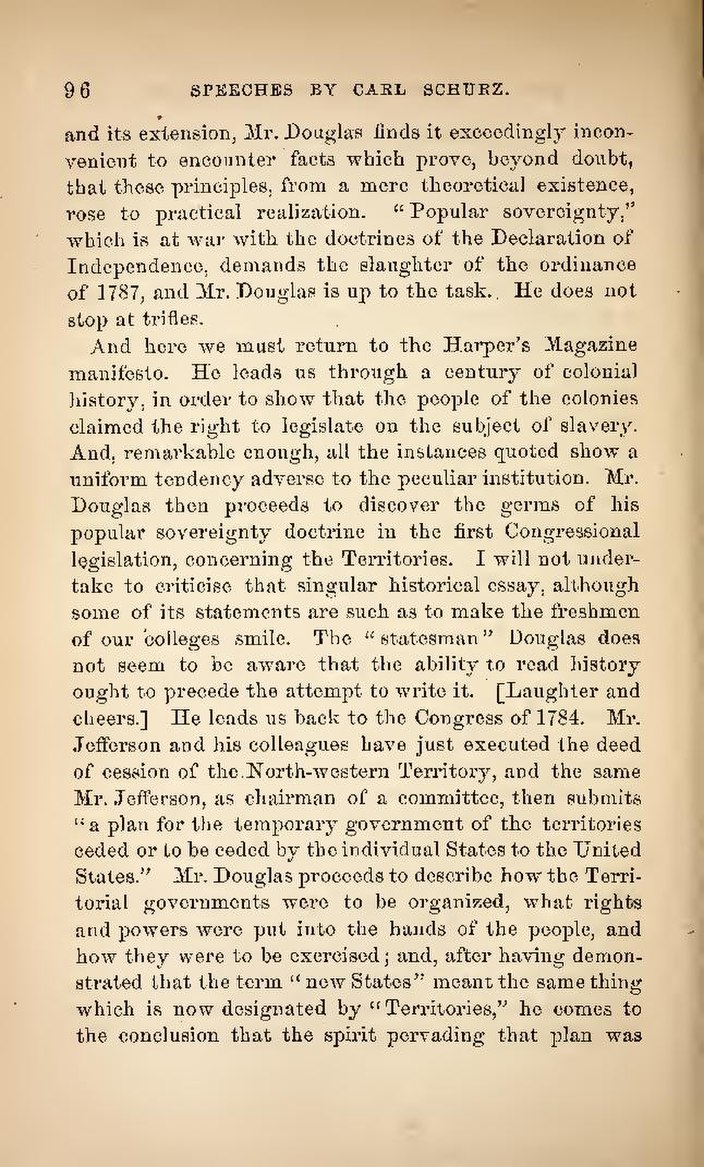and its extension, Mr. Douglas finds it exceedingly inconvenient to encounter facts which prove, beyond doubt, that these principles, from a mere theoretical existence, rose to practical realization. “Popular sovereignty,” which is at war with the doctrines of the Declaration of Independence, demands the slaughter of the ordinance of 1787, and Mr. Douglas is up to the task. He does not stop at trifles.
And here we must return to the Harper's Magazine manifesto. He leads us through a century of colonial history in order to show that the people of the colonies claimed the right to legislate on the subject of slavery. And, remarkably enough, all the instances quoted show a uniform tendency adverse to the peculiar institution. Mr. Douglas then proceeds to discover the germs of his popular sovereignty doctrine in the first Congressional legislation concerning the Territories. I will not undertake to criticise that singular historical essay, although some of its statements are such as to make the freshmen of our colleges smile. The “statesman” Douglas does not seem to be aware that the ability to read history ought to precede the attempt to write it. [Laughter and cheers.] He leads us back to the Congress of 1784. Mr. Jefferson and his colleagues have just executed the deed of cession of the North-western Territory, and the same Mr. Jefferson, as chairman of a committee, then submits “a plan for the temporary government of the territories ceded or to be ceded by the individual States to the United States.” Mr. Douglas proceeds to describe how the Territorial governments were to be organized, what rights and powers were put into the hands of the people, and how they were to be exercised; and after having demonstrated that the term “new States” meant the same thing which is now designated by “Territories,” he comes to the conclusion that the spirit pervading that plan was
